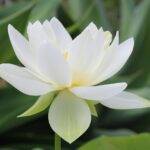The journey to parenthood can be both joyful and overwhelming, especially for the 1 in 8 couples in the U.S. affected by infertility. While modern fertility treatments like IVF and hormone therapy offer many paths to conception, more individuals are turning to acupuncture as a complementary fertility therapy.
Rooted in traditional Chinese medicine (TCM), acupuncture is an ancient healing practice that is gaining recognition for its role in supporting reproductive health. In this blog, we’ll explore how acupuncture can enhance fertility in both women and men by addressing hormonal imbalances, reducing stress and improving blood flow to reproductive organs.
What Is Acupuncture?
Acupuncture is a core component of traditional Chinese medicine that dates back over 3,000 years. It involves the gentle insertion of thin, sterile needles into specific points on the body, known as acupuncture points. These points lie along meridians, or energy pathways, through which Qi (vital energy) and blood flow.
When Qi becomes blocked or imbalanced, it may lead to various health concerns, including fertility challenges. Acupuncture aims to restore balance, support the body’s natural healing abilities and enhance overall wellness, including reproductive function.
Unlike conventional fertility treatments that focus solely on reproductive organs, acupuncture takes a holistic approach. Your acupuncturist will consider your full health picture (lifestyle, nutrition, emotional well-being and more) when crafting a personalized treatment plan.
How Acupuncture Supports Fertility
Acupuncture works through multiple pathways to support fertility. Here’s how:
1. Hormonal Regulation
Acupuncture can positively influence the endocrine system, helping to regulate hormone levels that govern ovulation, menstruation and reproductive function.
2. Improved Blood Flow to Reproductive Organs
Studies suggest that acupuncture increases blood flow to the uterus and ovaries, which can result in a thicker, healthier uterine lining and better ovarian function. These improvements can enhance implantation success and improve outcomes during IVF or natural conception.
3. Reduced Stress and Anxiety
Infertility can cause significant emotional stress, which in turn affects the reproductive system. Acupuncture helps lower cortisol and promotes the release of endorphins (natural mood enhancers), leading to a more balanced hypothalamic-pituitary-adrenal (HPA) axis, which regulates hormone production and fertility.
4. Support for Male Fertility
Acupuncture also benefits men. Research shows it may improve sperm quality, motility and count, all of which are essential for successful conception.
Scientific Research on Acupuncture for Infertility
While acupuncture has been used for centuries, recent studies are helping validate its role in fertility treatment:
- A meta-analysis published in the Journal of Obstetrics and Gynaecology Canada found that acupuncture significantly improved pregnancy rates in women undergoing IVF.
- Additional studies show that acupuncture can support hormonal balance, regular ovulation and menstrual cycle regulation.
- According to The American Pregnancy Association, the most effective approach often combines acupuncture with herbal medicine and conventional fertility treatments.
These findings underscore acupuncture’s value as a complementary therapy for infertility, not a replacement for medical interventions, but a powerful support system.
Final Thoughts: Is Acupuncture Right for Your Fertility Journey?
Acupuncture offers a safe, natural and holistic approach to improving fertility for both men and women. Whether you’re preparing for IVF, trying to conceive naturally or addressing hormone-related issues, acupuncture can play a supportive role in your care plan.
By promoting balance in the body, enhancing blood flow, calming the nervous system and regulating hormones, acupuncture may significantly increase your chances of conception.
Book your acupuncture appointment today and explore how this ancient practice can support your path to parenthood.








